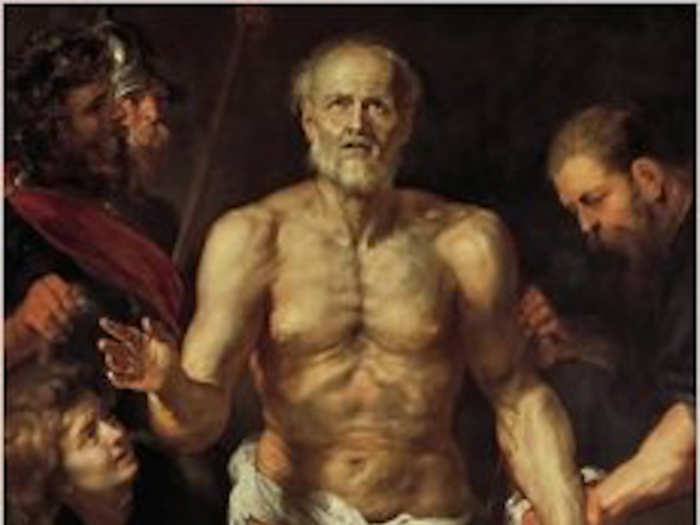
Ferriss has long had an obsession with Stoicism, the school of ancient Greek philosophy that was also adopted by Roman thinkers.
The most famous work of Stoicism may be the philosopher king Marcus Aurelius' "Meditations," of which Ferriss is a fan, but he's especially taken with Seneca's letters to his student Lucilious. The collection is, as Ferriss said, "about everything imaginable, and it's as applicable today as it was 2,000 years ago."
"Stoicism as a whole I think is the optimal operating system for thriving in high stress environments," he said.

Richard Feynman was a Nobel-prize winning physicist who was a bit of a Renaissance man. His book "Surely You're Joking, Mr. Feynman!", first published in 1985, is a collection of his autobiographical writings.
Ferriss has adopted Feynman's approach to life. He said the book "paints a picture of a very brilliant problem solver and merry prankster who was a polymath, taught himself how to play the bongos, used to paint in strip clubs. You've got to love this guy! And it's a hilarious book but it also shows you how good he was at testing assumptions and questioning dogma. Even in the face of embarrassment or criticism."

Ferriss said that after interviewing more than 100 high performers, he saw that true success should be defined as continuing to achieve while appreciating what one already has.
He explained that the 1946 novel "Zorba the Greek" by Nikos Kazantzakis captures this insight. It tells the story of an academic who sets aside his books to immerse himself in the world.
"'Zorba the Greek' is a really good read for trying to chill out that Type A drive ... piece of yourself, so that you can actually enjoy the ride," Ferriss said.

It may be a little off-putting to hear Ferriss say "all you need to know about leadership" is contained in "Dune," the 1965 sci-fi epic by Frank Herbert that tells the story of a sadistic intergalactic despot and his superhuman son who fuses his mind with a giant sand worm.
But two quotes by the late author lend insight. In a 1979 interview Herbert said, "The bottom line of the 'Dune' trilogy is: Beware of heroes. Much better [to] rely on your own judgment, and your own mistakes."
And in 1985 Herbert wrote, "'Dune' was aimed at this whole idea of the infallible leader because my view of history says that mistakes made by a leader — or made in a leader's name — are amplified by the numbers who follow without question."

"The Effective Executive" is a classic management book by Peter Drucker that was first published in 1967. It's about the way being effective (choosing the right things to attack) should be prioritized over being efficient (doing things quickly).
"I think it's much more valuable than 99% of the so-called time management books out there," Ferriss said.
 Love in the time of elections: Do politics spice up or spoil dating in India?
Love in the time of elections: Do politics spice up or spoil dating in India?
 Samsung Galaxy S24 Plus review – the best smartphone in the S24 lineup
Samsung Galaxy S24 Plus review – the best smartphone in the S24 lineup
 Household savings dip over Rs 9 lakh cr in 3 years to Rs 14.16 lakh cr in 2022-23
Household savings dip over Rs 9 lakh cr in 3 years to Rs 14.16 lakh cr in 2022-23

Copyright © 2024. Times Internet Limited. All rights reserved.For reprint rights. Times Syndication Service.